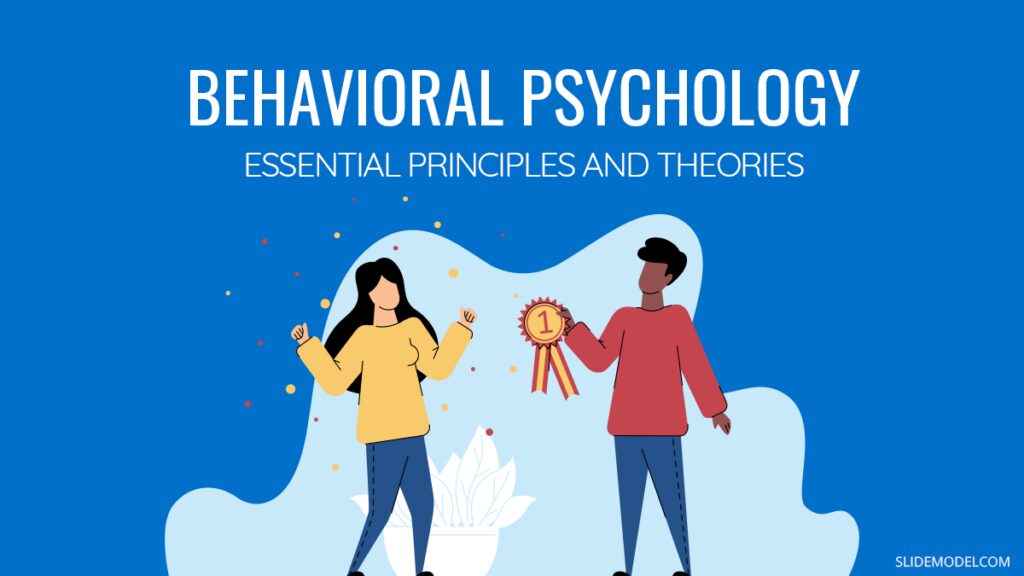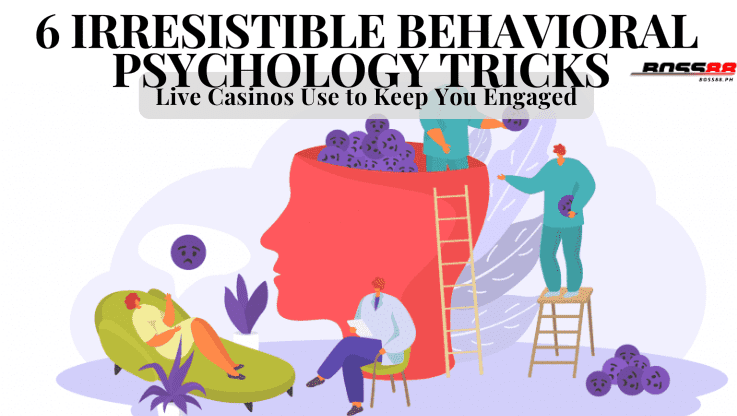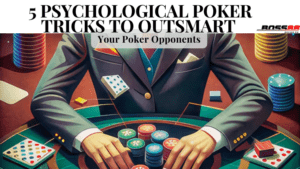Behavioral Psychology‘s Live casinos are a marvel of modern entertainment, combining real-time gaming action with the convenience of playing from home. But have you ever wondered why you find it so hard to log off? Behavioral psychology plays a significant role in designing these immersive experiences, ensuring that players stay engaged and entertained for longer periods. Here, we delve into six tricks live casinos use, breaking down the behavioral psychology behind their strategies and why they’re so effective.

The Power of Near Misses
Near misses are one of the most powerful psychological tools employed by live casinos. A near miss occurs when a player comes tantalizingly close to winning but ultimately falls short. For example, in a roulette game, your chosen number might be one slot away from the winning number.
Why It Works:
The human brain interprets near misses as a form of progress rather than failure. This activates the reward center in your brain, encouraging you to keep playing in the hope of achieving that elusive win. Casinos capitalize on this by subtly emphasizing near-miss outcomes, making players feel they’re “getting closer” to success. Behavioral psychology research highlights this phenomenon as a key driver of continued engagement.
Leveraging Social Proof
Live casinos often display features like leaderboards, recent winners, and live chat interactions to showcase active participation by other players.
Why It Works:
Social proof is a psychological phenomenon where people look to others to determine appropriate behavior. Seeing others win or actively engage in games can make you feel like you’re part of a vibrant community, encouraging you to join in the action. This tactic fosters a sense of competition and belonging, both of which are strong motivators to continue playing. Behavioral psychology underpins the effectiveness of social proof in enhancing player retention.

Continuous Reinforcement and Rewards
Promotions, bonuses, and loyalty rewards are staples of live casinos. From welcome bonuses to daily spin rewards, these incentives keep players coming back.
Why It Works:
In psychology, continuous reinforcement refers to rewarding behavior every time it occurs. Live casinos use this principle to build habits. For instance, receiving a bonus for logging in daily reinforces the behavior of returning to the platform. Behavioral psychology principles suggest that consistent rewards create a loop of positive reinforcement, increasing engagement and loyalty.
Optimizing Visual and Auditory Stimuli
Live casinos are designed to be visually stunning and audibly stimulating. Bright colors, spinning wheels, and celebratory sound effects are all part of the experience.
Why It Works:
Colors like red and gold are associated with excitement and prosperity, while upbeat sound effects trigger dopamine releases. This creates an environment that’s both stimulating and rewarding, making it hard for players to resist playing “just one more game.” The sensory overload keeps you captivated, ensuring you remain fully immersed in the gaming experience. Behavioral psychology studies have shown that sensory stimulation significantly impacts engagement.

Creating a Sense of Control
Many live casino games give players the illusion of control. For instance, players can choose how to place their bets, interact with dealers, or even make decisions in games like blackjack.
Why It Works:
Behavioral psychology shows that people are more likely to engage in activities where they feel a sense of agency. By allowing players to make decisions, casinos give them the impression that skill, rather than luck, influences outcomes. This perceived control boosts confidence and encourages continued play. Behavioral psychology research demonstrates that the illusion of control is a strong motivator for sustained engagement.
Time Distortion Techniques
Live casinos often blur the perception of time. There are no clocks or notifications to remind you of the hours passing. Additionally, live dealers maintain a steady flow of games to ensure there are no pauses or lulls.
Why It Works:
Time distortion is a common psychological effect in highly engaging environments. When you’re deeply engrossed in an activity, you lose track of time. Casinos leverage this by creating a seamless, immersive experience, ensuring players remain engaged for extended periods without realizing how long they’ve been playing. Behavioral psychology insights reveal that time distortion enhances focus and reduces distractions.
How to Stay in Control While Playing
While understanding these psychological tricks can enhance your appreciation of live casino design, it’s essential to stay in control of your gaming habits. Here are some tips to keep in mind:
- Set a Time Limit: Use alarms or timers to ensure you’re aware of how long you’ve been playing.
- Establish a Budget: Decide how much you’re willing to spend and stick to it.
- Take Breaks: Regular breaks can help you reset and assess your gaming decisions.
- Play for Fun, Not Profit: Approach live casinos as a source of entertainment rather than a way to make money.
Final Thoughts
Live casinos are masterful in their use of behavioral psychology to create captivating and immersive experiences. From near misses to time distortion, these tricks are designed to keep you engaged, entertained, and coming back for more. By understanding the behavioral psychology behind these strategies, you can make more informed decisions and enjoy the thrill of live casino games responsibly. Remember, the ultimate goal is to strike a balance between entertainment, strategy, and mindful gaming.







































